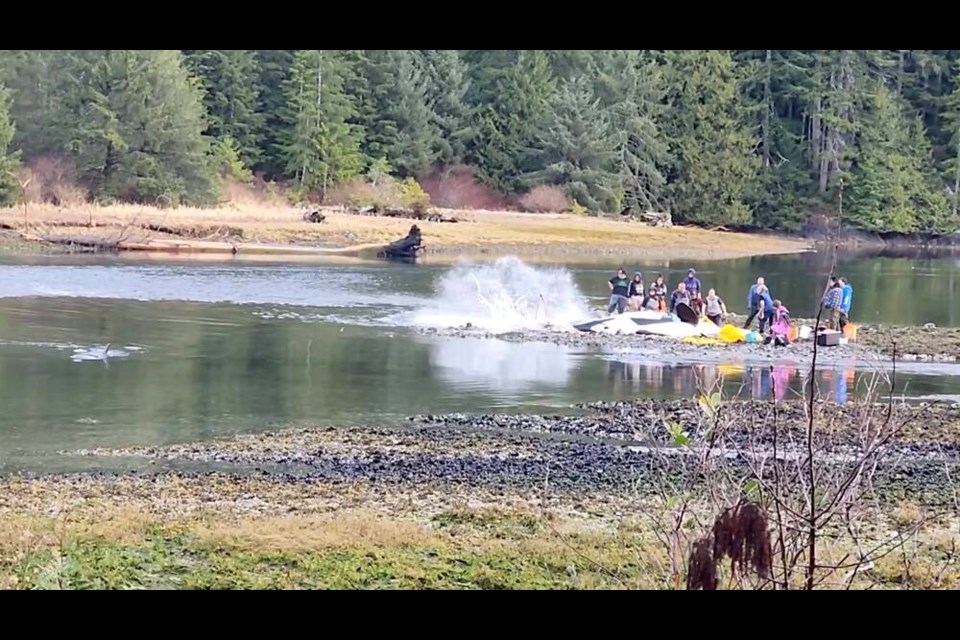Update:
A British Columbia marine research group says a female killer whale died Saturday after being stranded in shallow water near the Village of Zeballos on the west side of Vancouver Island.
The Marine Education & Research Society says in a social media post that the animal has been identified as a Bigg's killer whale, given the designation of T109A3, who was born in 2009 and had a calf in 2022.
The society says there was an intense effort to save the whale, which was likely hunting when ebbing tides beached her, while her calf was spotted nearby.
The society says there was a dead seal near the stranded whale, suggesting she was hunting, but she may have also had health issues that could be revealed by a necropsy.
It says efforts are now focused on making sure the calf can leave the lagoon and possibly reunite with a family pod, as they know its mother had "often travelled with her mother and siblings."
A Fisheries Department official said Sunday that department staff were on site, and more details of the stranding were likely to be shared Monday.
— The Canadian Press
- - -
An orca beached near Zeballos on Saturday morning has died.
In a widely shared video of the incident, a dozen people were seen mounting a rescue effort for the beached female orca near the Zeballos causeway while her calf swam nearby.
The Marine Education and Research Society said the female, believed to be a Bigg’s killer whale, died despite best efforts.
“The incoming tide and inability to refloat her so she was not on her side, led to her death,” the Port McNeill-based marine conservation society said on social media.
Paul Cottrell, Department of Fisheries and Oceans marine mammal co-ordinator, said the incident was reported on Saturday about 8:30 a.m. and that the whale’s death occurred about an hour later. A team is on the way to identify the whale, he said, adding that this is DFO’s first report of a beached orca in 2024.
DFO is working on getting the “best outcome possible” for the orca calf and is working with local First Nations with the response, he said.
The Marine Education and Research Society said the calf remained nearby after the death of its mother.
The calf’s survival will depend on its age and the family structure of the whale group it belongs to, it said.
It is unclear why the female orca was stranded, the society said, adding that the whales would have come in on a high tide, possibly for hunting purposes.
The spot where the whale was stranded is known to recede quickly during a falling tide.
Nearby Nuu-chah-nulth First Nations, whose members were among the first to respond to the scene, have since sent a number of boats into Nootka Sound to look for an orca pod that might be able to take in the calf.
People are being advised to stay away from the causeway during the cleanup and investigation.



